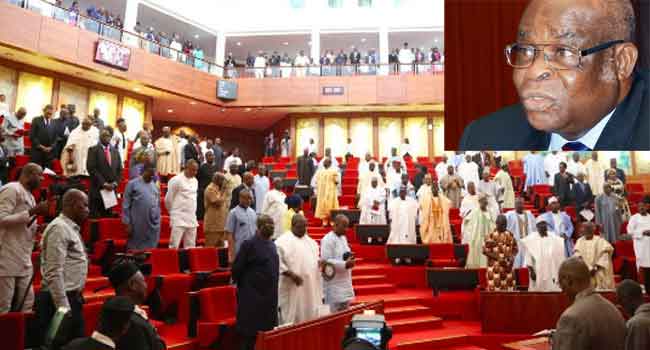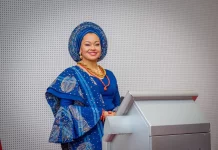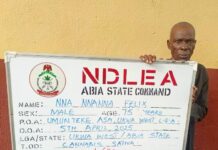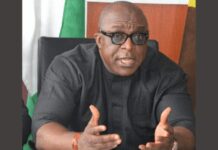By Emeka Alex Duru
But for relative semblance of stability in leadership in the Senate and House of Representatives in the last four years, the Eighth National Assembly, which held its valedictory session, last Thursday, June 6, 2019, would easily have passed as a complex of controversies.
The uncertainties, occasioned by human and institutional factors, virtually set the tone for the business of the legislature at its inauguration on June 8, 2015. While the confusion lasted, it exposed the underbelly of the ruling All Progressives Congress (APC), portraying it as a party that was merely concerned with grabbing power and not necessarily, what to do with it. What set the stage for the uncanny developments in the NASS, was the crisis that trailed the election of its principal officers.
Before the inauguration of both chambers of the Assembly, APC, had in a manner that was considered opaque to even some key members, settled for Senator Ahmed Lawan as Senate President and George Akume, former Benue State governor, as Deputy Senate President. It also positioned Femi Gbajabiamila as Speaker, House of Representatives, while Ali Monguno was to be his Deputy.
The decision however did not go down well with the Bukola Saraki group in the Senate and the Yakubu Dogara elements in the House of Representatives. The aggrieved lawmakers who had been schemed out of APC consideration, went into alliance with their PDP colleagues, thus giving rise to Saraki/Ike Ekweremadu victory in the Senate and Dogara emergence in the House.
The outcome struck the APC as a thunderbolt and the party promptly vowed to get even with the Saraki, Dogara groups. In what appeared the first salvo, APC fired a statement by its then National Publicity Secretary, Lai Mohammed (immediate past, Minister for Information), where it dismissed the emergence of Saraki and Dogara as totally unacceptable, describing it as the highest level of indiscipline and treachery by the affected officers.
“There can be no higher level of treachery, disloyalty and insincerity within any party”, he fumed, adding that the party would use all constitutional and legal means available to it to reverse the exercise. Mohammed vowed that APC would not accord the NASS leadership any recognition, adding, curiously, that with the developments in the legislature, the change promised to Nigerians by the party, would no longer be attainable.
That, effectively, marked the commencement of uncertainties in the Assembly. As if that was not enough, the Presidency which had initially pledged neutrality in the affairs of the legislature, somehow, got drawn into the impasse by the utterances and body language of President Muhammadu Buhari, in which he barely disguised his utter disdain for the senate leadership. The cat-and-dog relationship between the presidency and APC on one hand and NASS, on the other hand, characterised their relationship in the last four years, thus, accounting for the mixed fortunes of the Assembly in its activities.
Learning from the past
Nevertheless, some Nigerians give the immediate past NASS leadership credit on many fronts, amongst which is its ability to ensure relative stability in the leadership of the Assembly. In this instance, the Eighth Assembly took a cue from its predecessor which stuck to its leadership in both the Senate and House of Representatives from 2011 to 2015. In the Eighth Senate, David Mark (Benue South), was the president, while Aminu Tambuwal, presently, Sokoto State governor, was the Speaker.
That was not the case with some of their predecessors, especially in the Senate. Here, with the possible exception of Pius Anyim and Ken Nnamani, other Senate Presidents including Evan Enwerem, Chuba Okadigbo and Adolphus Wabara, had left office in circumstances that were considered breezy and uncomplimentary.
Their ascension to office and or removal from office had imprints of the presidency, especially during the administration of former President Olusegun Obasanjo.
Enwerem who became the first President at the onset of the current dispensation in 1999, had the backing of Obasanjo for the job. With the support of the former President, he easily defeated Okadigbo, his main rival with 66 votes to 43. He however did not last on the post as he clearly lacked the support of his colleagues. Few months into office, allegations of corruption were levelled against him. He was also accused of falsifying his age in addition to the controversy as to whether his real name was Evan or Evans. Enwerem was removed from office on November 18, 1999. That marked the beginning of the so-called banana peel hypothesis that trailed the ouster of his successors.
Okadigbo, who replaced Enwerem, was in turn removed from office on August 8, 2000. Though he was falsely charged of corruption and impeached, his removal did not come to many as a surprise given his lukewarm relationship with Obasanjo.
Anyim who succeeded Okadigbo, had turbulent times in the hands of the Obasanjo presidency but came out of the storm unscathed. He later became the Secretary to the Government of the Federation (SGF) in the Goodluck Jonathan administration.
Wabara, who came on board in 2003, was not that lucky. Seen widely as Obasnjo’s acolyte, they fell out along the line and by April 2005, he was literally forced to resign from his position after allegations were made that he and others took a $400,000 bribe from the then Education Minister, Fabian Osuji, to approve the budget for his ministry. He was later cleared of any wrong doings by the courts. Wabara was succeeded by Nnamani, who served out his term without scandal.
Saraki who had been in the Eighth Senate, must have learnt a lot from the tact exhibited by Mark in managing the affairs of the chambers, hence he maintained a scandal-free reign. The chambers also had a cordial relationship with the lawmakers in the House of Representatives, given the way both leaderships emerged. “That is a great plus to Senator Saraki and his colleagues. I am not particularly a fan of the former Senate President and his team, for some personal reasons. Their constant squabbles with the executive robbed the country of harmonious governance. But you must concede to them the fact of having sustaining the independence of the legislature, the very hallmark of democracy. That is a point we must credit to them”, Patrick Nwabunnia, a political scientist and public opinion analyst, told our reporter. Critics however accuse the Saraki-Dogara led NASS of haughty carriage that regularly saw them at daggers-drawn with the President, consequently slowing down the wheel of governance.
Kudos to NASS
On the whole, it is held in some quarters that the Assembly had succeeded in passing several bills in the last four years with President Buhari refusing to assent to some of them. A case in point is the 2018 Electoral Act (Amendment) Bill, which was transmitted by the National Assembly to the President but refused assent in a record four times. In apparent chest-thumbing exercise, Saraki had recently emphasised that members of the Eighth Assembly deserved some kudos, for working “assiduously and diligently to meet the demands of Nigerians.” In December last year, he had stated that the Senate had passed 213 Bills, cleared 138 petitions submitted by the public. “We are happy to say that this Senate is the most productive since 1999. It has surpassed the fifth Senate with 129 bills in four years, as against the sixth Senate with 72 bills, and 128 passed by the seventh Senate”, Saraki enthused.
Other areas he credited the Senate with contributing to growing the economy, included, passing Bills like the Companies and Allied Matters Act Bill; the Secured Transactions in Movable Assets Bill; the Credit Bureau Reporting Bill and the Warehouse Receipts Bill; Nigerian Railways Authority Bill and National Transportation Commission Bill, which according to him, were aimed at providing significant reforms to the business environment. He recalled also that the eighth Senate passed bills like the Nigerian Financial Intelligence Unit Bill (FIUB); the Mutual Assistance in Criminal Matters Bill; the Witness Protection Bill; the Whistleblower Protection Bill and the Federal Audit Service Commission Bill to support the fight against corruption.
Knocks on the lawmakers
Despite the efforts by the NASS leadership to present its members as living up to their expectations, Nigerians were united in utter condemnation of their ostentatious lifestyle. For example, despite being public officers, the lawmakers’ obscene emoluments remained a well-guarded secret until the bubble burst in 2018, when Shehu Sani (Kaduna Central), disclosed that each of them collected N13.5 million monthly as operational cost. This was besides their salaries.
Critics also allege that the Eighth Assembly deepened corruption in the system, instead of the transparency and accountability it was elected to pursue. For instance, in 2016, under the so-called constituency projects, a sum of N40 billion was scandalously inserted into the budget at the instance of the House leadership. In the 2017 budget, the N31 billion the Executive allocated for the reconstruction of Lagos-Ibadan Expressway was reduced to N10 billion. The lawmakers added 100 new roads of their own. This trend reached new heights in 2018, with their addition of 6,403 new projects that served purely their interests, amounting to N578 billion. These unwholesome antics, perhaps, explained why they hardly had the nerves to override the President when he withheld his assent to their bills.
Thus, against the backdrop of the mixed fortunes in the activities of the Eighth NASS, opinions were divided in rating the members. But all were agreed that against the ravenous posturing of an obvious cocky presidency, the NASS leadership held on tenaciously in sustaining the independence of the legislature and thus, saving the country the trauma of civilian autocracy.














